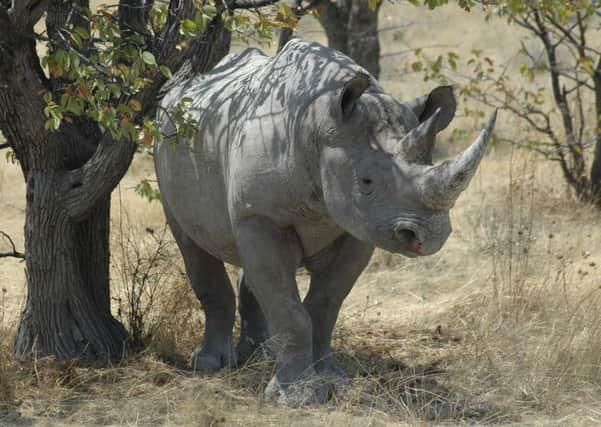Rhinos rugby team tries to save its namesake


THERE was a time when rugby players did their “talking” on the pitch and no one cared much what they said off it.
These days, however, players and their managers, have a much higher status. Like an increasing number of sporting professionals they are seen as lifestyle ambassadors, role models for the young and their support is a highly prized commodity.
Advertisement
Hide AdAdvertisement
Hide AdSo when Gary Hetherington, chief executive of Leeds Rhinos, lends his support to something, it really does matter.
The former player turned businessman has done just that by backing a scheme to help raise funds to save a group of wild animals which served as the inspiration for his team’s emblem: the rhino.
He has backed the Bead Coalition’s Save the Rhino campaign – with bead bracelets already being sold from the club’s shop.
Mr Hetherington, who played nearly 300 games for Wakefield Trinity, York, Leeds and Huddersfield before his retirement from the game, says he’s delighted to be supporting Rhino Force, Save the Rhino International and the Wilderness Wildlife Trust with their initiatives, and hopes the partnership will help raise awareness of the issue of rhino poaching.
Advertisement
Hide AdAdvertisement
Hide Ad“We encourage anyone concerned about the plight of rhinos, and other wildlife, to show their support by wearing the bracelet.”
It’s hoped his support will raise awareness about the war against poachers who threaten to make the team’s mascot an extinct species. In South Africa there are around 14,500 white rhinos and only 4,500 black rhinos left, with one being lost every 11 hours to poachers.
Rhino horn fetches around $85,000 a kilo – with one rhino horn weighing between five and eight kilos – and in the vast expanse of the Kruger National Park the battle is being lost. Poaching in South Africa is endemic and gangs are becoming increasingly professional in their outlook, using high-powered weapons and even drone aircraft to spot rhinos.
The Rhino Force project aims to relocate as many rhinos as possible to the Okavango swamps in Botswana, a region known as the “Garden of Eden”.
Advertisement
Hide AdAdvertisement
Hide AdSouth African Chris Thorpe from The Bead Coalition, who visited Leeds in February to promote the scheme, says poachers are winning the war. “Part of the problem is the massive growth of the middle class in China. For centuries, it has been part of the culture that rhino horn has mystical qualities to cure everything from corns to cancer – in reality, it’s made of the same stuff as our finger nails. But we’re going up against 5,000 years of Chinese tradition, so changing people’s minds is not easy.
“We are also aware that Leeds has a sizeable student population from the Far East and Asia and part of our mission is to educate people, many of whom are not aware the animal dies when the horn is extracted.”
He says part of the problem is the amount of money involved. “Poaching is endemic in South Africa, it has long been a way of life but it’s no longer just the odd person going out with a shotgun, the people who poach now go out with sophisticated weaponry and when you think they will be paid around $8,000 – that’s enough to feed a whole village for a year. It’s very organised now to the point where there’s a war going on.
“What is worrying is the way poaching has increased. Last year, over a thousand rhinos were killed by poachers.
Advertisement
Hide AdAdvertisement
Hide Ad“I know of one rhino, Old Phila, who was shot eight times with an AK47. She was badly wounded but found alive and nursed back to health.”
But he says it was not all doom and gloom – some rhinos have already moved. “There is hope and we’re grateful for the support of Leeds Rhinos.”